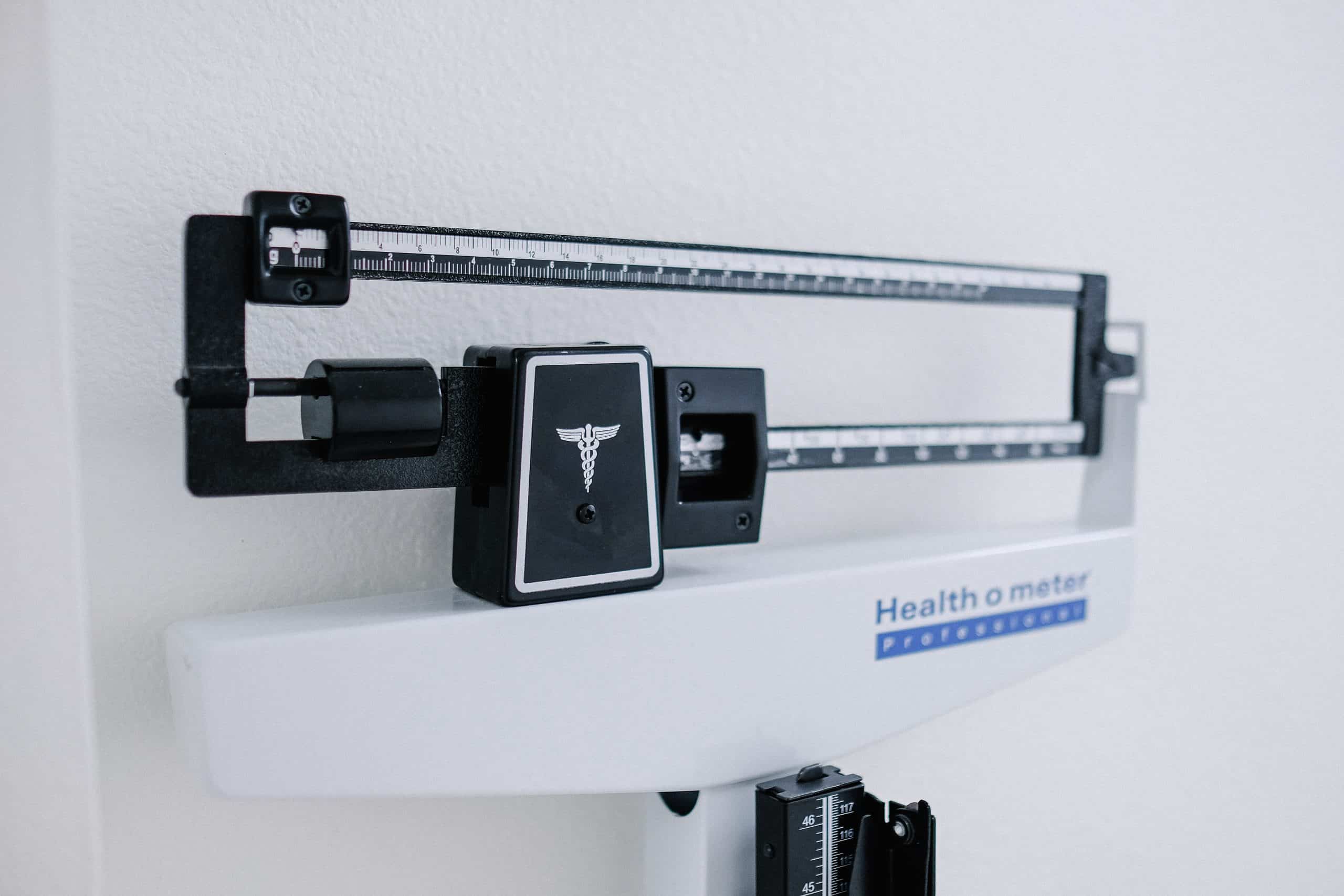I will never forget the first time my doctor told me I was morbidly obese. Well, he didn’t actually tell me, but his nurse wrote it down on my intake form. There it was in stark black and white. “Morbidly obese.” It wasn’t a good feeling. So what do you do if your doctor has told you that you are dangerously overweight? It can seem overwhelming, but there is hope. You just have to have a plan, and the will to follow through.
Know What Morbid Obesity Means
 When I saw in my chart that I was morbidly obese, I wasn’t exactly sure what that meant, other than the fact I weighed 300 pounds. Here’s what the definition of morbid obesity is according to the National Institutes of Health:
When I saw in my chart that I was morbidly obese, I wasn’t exactly sure what that meant, other than the fact I weighed 300 pounds. Here’s what the definition of morbid obesity is according to the National Institutes of Health:
- Being 100 pounds or more above your ideal body weight.
- Your Body Mass Index (BMI) is 40 or greater.
- Or, instead of your BMI be 40 or greater, it’s 35 or greater, and you have one or more co-morbid conditions such as diabetes.
Ask Your Doctor For Advice
 The first logical step is sometimes hard to do. Many people I talk with about weight issues don’t like to ask their doctor for help with weight loss, because they’re fearful or embarrassed. But don’t let that stop you from getting the help you need. Talk to her about what staying at your current weight may do to your health over the long term, and what she recommends. She may tell you to follow a particular diet such as Weight Watchers, get you an appointment with a nutritionist, or think about surgery.
The first logical step is sometimes hard to do. Many people I talk with about weight issues don’t like to ask their doctor for help with weight loss, because they’re fearful or embarrassed. But don’t let that stop you from getting the help you need. Talk to her about what staying at your current weight may do to your health over the long term, and what she recommends. She may tell you to follow a particular diet such as Weight Watchers, get you an appointment with a nutritionist, or think about surgery.
Consider All Your Options
 As hard as it is to hear, being morbidly obese puts you at risk for all sorts of health complications, from heart disease to joint issues. Because of this, you should consider all your weight-loss options, including bariatric surgery, should your doctor recommend it. I’m frequently asked whether I considered surgery when I was 300 pounds. I did think about it, but in the end, decided to lose weight by diet and exercise. There are pros and cons to surgical solutions to morbid obesity. Some of the pros include feeling full quickly, relatively fast weight loss, and the potential reversal of obesity-related health issues such as high blood pressure. Some of the cons include eventual [linkbuilder id=”6877″ text=”weight regain”] surgical complications, frequent nausea, and malnutrition. There are really no cons to losing weight using diet and exercise. Both options require a long-term commitment to changing your lifestyle and relationship with food.
As hard as it is to hear, being morbidly obese puts you at risk for all sorts of health complications, from heart disease to joint issues. Because of this, you should consider all your weight-loss options, including bariatric surgery, should your doctor recommend it. I’m frequently asked whether I considered surgery when I was 300 pounds. I did think about it, but in the end, decided to lose weight by diet and exercise. There are pros and cons to surgical solutions to morbid obesity. Some of the pros include feeling full quickly, relatively fast weight loss, and the potential reversal of obesity-related health issues such as high blood pressure. Some of the cons include eventual [linkbuilder id=”6877″ text=”weight regain”] surgical complications, frequent nausea, and malnutrition. There are really no cons to losing weight using diet and exercise. Both options require a long-term commitment to changing your lifestyle and relationship with food.
Get Regular Support
 Losing over 100 pounds requires a significant amount of time, an adjustment to new eating habits, and dealing with emotional issues you have surrounding food. I’d encourage you to meet with a therapist to discuss the underlying issues that caused you to overeat to the point where you are right now. If you aren’t comfortable with a therapist or can’t afford one, find a weight-loss support group that meets regularly, either online or in person. A good support group can prop you up when you’re feeling weak and help you work through some of your cravings for food.
Losing over 100 pounds requires a significant amount of time, an adjustment to new eating habits, and dealing with emotional issues you have surrounding food. I’d encourage you to meet with a therapist to discuss the underlying issues that caused you to overeat to the point where you are right now. If you aren’t comfortable with a therapist or can’t afford one, find a weight-loss support group that meets regularly, either online or in person. A good support group can prop you up when you’re feeling weak and help you work through some of your cravings for food.
Follow a Comprehensive Life-Changing Plan
 It doesn’t matter how you decide to lose weight. You still have to follow a weight-loss plan that’s comprehensive. What do I mean by comprehensive? I mean a plan that meets these five criteria: 1. Sustainable. 2. Realistic for your lifestyle. 3. Based around real food instead of supplements or packaged diet foods. 4. Includes exercise. 5. Has built-in accountability. I know firsthand how overwhelming it can seem to make all the changes necessary to lose 100 pounds or more. The secret is to consider the changes you’re making as life-changing and permanent. No more temporary diets or attempts to quickly fix your morbid obesity. Day after day, follow your plan, get support, and keep yourself accountable. Over time you’ll see the pounds come off, and your health and appearance improve.
It doesn’t matter how you decide to lose weight. You still have to follow a weight-loss plan that’s comprehensive. What do I mean by comprehensive? I mean a plan that meets these five criteria: 1. Sustainable. 2. Realistic for your lifestyle. 3. Based around real food instead of supplements or packaged diet foods. 4. Includes exercise. 5. Has built-in accountability. I know firsthand how overwhelming it can seem to make all the changes necessary to lose 100 pounds or more. The secret is to consider the changes you’re making as life-changing and permanent. No more temporary diets or attempts to quickly fix your morbid obesity. Day after day, follow your plan, get support, and keep yourself accountable. Over time you’ll see the pounds come off, and your health and appearance improve.



